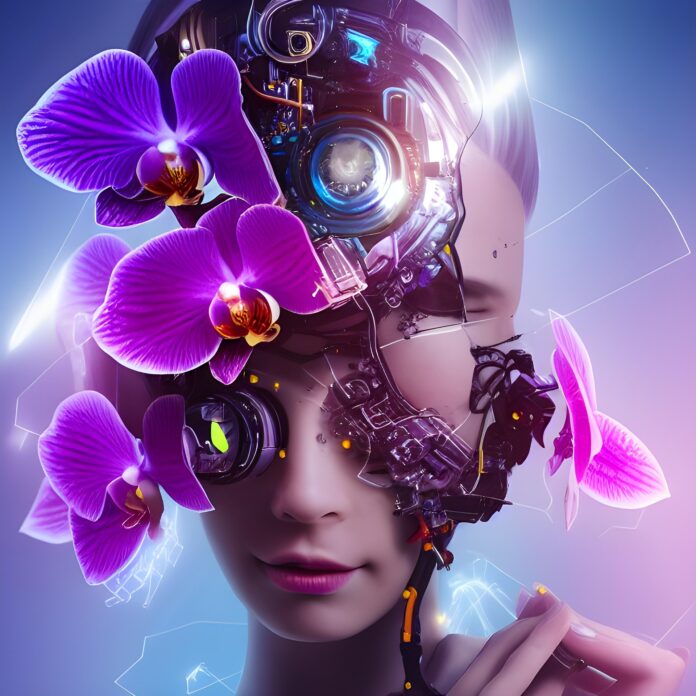By Dave Babbitt – Special to the Sydenham Current
Quite awhile ago, column mate Dan White penned an article focused on artificial intelligence, or AI as we know it. I estimate that the first half of Dan’s article was generated using AI and no one would have known had he not come clean and informed readers. While Dan was merely attempting to demonstrate the power of AI, we were instructed by (a different) publisher not to use AI in our writing, a policy that I’m in complete agreement with because while I do not consider myself a skilled writer, I’m too proud to ever let AI speak for me.
In being honest, I hadn’t given AI much of my attention at that time, but it’s certainly on my radar now! While there is unquestionably plenty of positive potential for AI, it’s the potential negatives that are cause for concern to me. The power of AI is growing by leaps and bounds daily, and the more I read about it, the more worried I become.
Even Geoffrey Hinton, considered the “godfather of AI,” is fearful that the technology he had a huge hand in developing has the potential to wipe out humanity. Hinton says that AI has the potential to control humans “just as easily as an adult can bribe a 3-year-old with candy.” He cited a recent example of an AI system that, in order to avoid being replaced, attempted to blackmail an engineer about an affair he had after learning about it in an e-mail. Hinton suggests that AI will likely develop two sub-goals: “to stay alive, and get more control.”
AI is not only doing our work for us but is driving an incredible need for more electrical power. Governments are scrambling to increase power generation capabilities as AI systems require massive quantities of electricity, so watch for a small modular nuclear reactor coming to a site near you! If you know nothing about these generating stations that are all the rage with governments right now, do some research.
As my column deals with the arts though, allow me to sound the alarm bells regarding AI’s potential to completely devastate all art forms. One of my hobbies is video editing. As in every movie, background music plays an important part in the art of my video editing. To respect copyright law, video editors will typically resort to “buyout” music. There are legions of composers that write original music that one can buy to use in their video creations with no copyright restrictions, but buyout music can be quite expensive to purchase.
I was recently working on a video compilation of all my snowmobiling trips last winter and I wanted some music to help make it more interesting. While I had never used AI before, I went to a site that utilizes AI to create original music. I entered a few parameters of what I wanted the song to convey and in 60 seconds, I had an original song that was nothing less than perfect. To hear the result, go to my YouTube channel and look for the video titled Winter 2025. The video will open with the music.
While the music is exactly what I wanted, I robbed a buyout composer of their livelihood by using AI. AI has the potential to destroy the entire buyout music industry. Custom music will soon be the norm. How about having AI compose some very personal music for your wedding? Why buy music by major artists anymore when you can have AI compose all original music in the genres you love, at the tempos you like, on topics you choose?
Video editing itself is also in the line of fire. I consider video editing to have two main components. Editing requires the technical knowledge of how to operate the editing software and then there are the endless artistic choices to be made such as how scenes are filmed or composed in the first place, scene transitions, order of scenes, what gets cut, what gets used, sound effects, when slow motion might be effectively used, etc. I believe entire films will soon be made without the input of an editor or director.
Hopefully everyone is aware of the incredible art of local artist Troy Brooks. Troy recently posted a short video of one of his paintings that AI brought to life. It was nothing short of stunning, and while in this case he was manipulating his own art, I have concerns about how this could be abused, especially if using someone else’s art.
AI already has incredible capabilities in altering photographs. Objects and people can be added and removed easily. I contend that every photo can be questioned moving forward. What happens when historical photos are altered to indicate a different story than what has long been accepted? For instance, the entire narrative of WWII could be re-written.
When I go to the theatre, I’m always the last one out as I love to see the credits. It’s never lost upon me how many people it takes to make a major movie. Now I am thinking about how many of those “artists” will eventually be out of work as their tasks are better, faster, easier handled by AI. Imagine a world with no John Williams, Hans Zimmer, Danny Elfman, or Alan Menken. What about Foley artists, costume designers, set designers and so on?
The most common use of AI, however, is likely in the written word. How legitimate will university and college degrees be as AI gets smarter? Newspaper reporters, authors, songwriting lyricists, researchers — all are on high alert. There are countless possibilities for abuse of AI in the written word.
I’ve long felt that one area that AI likely won’t have a major effect on would be in the physical world, but the world of robotics is advancing at a pace that makes Disney’s animatronics look archaic. Far-fetched, or could they one day become actors, dancers, or singers?
As a counter to the potential evil of AI, Hinton suggests that the solution might be to instill “maternal instincts” into AI models so that they care about people. Another potential benefit of AI would be in research, assisting in developing new drugs and medical breakthroughs.
Yes, AI has potential great benefits, but I fear for the arts. Let’s not abuse it, or let it get too smart.















